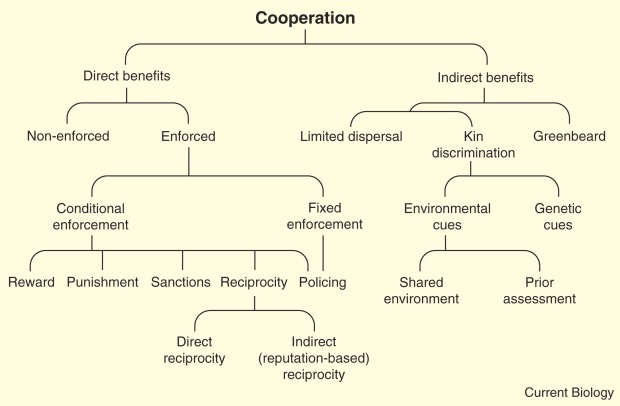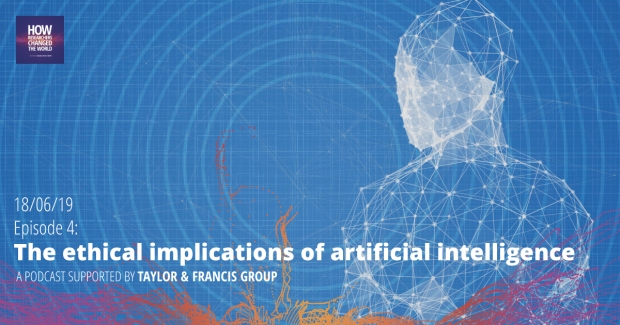Cooperation is the most important issue of our time. It is the key to understanding biology, the success of humans, effective business models, social media, and future society based on beneficial AI.
The challenge is that many interactions have the character of the “Prisoner’s Dilemma” or “Tragedy of the Commons” where selfish actors do better for themselves while arming the group benefit and cooperative actors help the group but can lose out in individual competition.
A variety of mechanisms that lead to cooperation have been invented and studied in biology, economics, political science, business, analysis of social technologies, and increasingly in analyzing AI.
All of these subjects are grounded in biology and today’s biology exhibits cooperation at every level of the “Major Transitions in Evolution”:
The Major Transitions in Evolution
https://en.wikipedia.org/wiki/The_Major_Transitions_in_Evolution
From Smith and Szathmary’s book “The Major Transitions in Evolution”:
Biology has to explain how independent biological molecules work cooperatively inside of cellular compartments, how separate genes cooperate in a genome, how mitochondria and other organelles cooperate in eukaryotic cells, how the cells in multicellular organisms cooperate, how two or more sexes cooperate in creating offspring, how social insects and other animals cooperate in hives, how mutualisms between different species happen, how humans cooperated in creating and using language, how humans created cooperative societies.
Biological cooperation contains all the abstract elements of general cooperation studied by economics. But biological cooperation has the extra element of “relatedness” between organisms that share genes. Hamilton’s notion of “inclusive fitness” has been a central insight in understanding cooperation in many of these biological systems.
But it’s looking to me like “partner choice”, “partner switching”, and “cheater punishment” are the fundamental mechanisms underlying many of these cooperative interactions and they apply as well to economic interactions, business interactions, political interactions, and increasingly technological and AI interactions.
I therefore think it is very important to have a clear and mathematically precise theory of these mechanisms. And would love to see detailed simulation modelling and eventually AI models both for understanding and for mechanism design and policy design.
Those preliminary thoughts are meant to motivate the study of this excellent review article which tries to systematize the different explanations for cooperation in biology:
Evolutionary Explanations for Cooperation
Stuart A.West Ashleigh S.Griffin AndyGardner
https://doi.org/10.1016/j.cub.2007.06.004
https://www.sciencedirect.com/science/article/pii/S0960982207014996
Natural selection favours genes that increase an organism’s ability to survive and reproduce. This would appear to lead to a world dominated by selfish behaviour. However, cooperation can be found at all levels of biological organisation: genes cooperate in genomes, organelles cooperate to form eukaryotic cells, cells cooperate to make multicellular organisms, bacterial parasites cooperate to overcome host defences, animals breed cooperatively, and humans and insects cooperate to build societies. Over the last 40 years, biologists have developed a theoretical framework that can explain cooperation at all these levels. Here, we summarise this theory, illustrate how it may be applied to real organisms and discuss future directions.
Here is the pdf of the paper:
Here is the key figure which tries to categorize all of the biological cooperation mechanisms:


